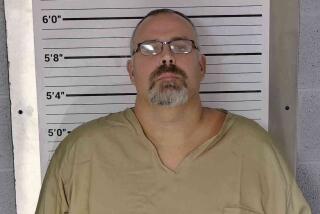Swiss official says Roman Polanski extradition proceedings on indefinite hold
For a man who didn’t set foot out of his house Friday, Roman Polanski had an eventful day.
His new film, “The Ghost Writer,” a political thriller with a glamorous Hollywood cast, debuted at the Berlin Film Festival. And his legal battle to avoid returning to the U.S. got a boost when a Swiss official said extradition proceedings stemming from his three-decade-old child sex case were on indefinite hold.
Polanski, 76, remained under house arrest, his round-the-clock presence in his Gstaad ski chalet secured by an ankle bracelet and $4.5-million bond. His lawyers and agent declined to comment on the legal development. But there seemed little doubt that the words of an official from the Swiss Justice Ministry boded well for the filmmaker.
The ministry’s deputy director said Swiss authorities would not make any decision on Polanski’s case until courts in California made a definitive ruling on whether the director could be sentenced without returning to the U.S. The issue is not pending before any California court, but Polanski’s lawyers have said they will appeal a lower court judge’s refusal last month to sentence him in absentia.
“When the question is still open, why should he be extradited?” deputy director Rudolf Wyss told the Associated Press. “As long as the question is still open, our decision depends on that.”
The apparent reluctance of the Swiss to move on the extradition until all of Polanski’s legal options in the U.S. are exhausted raises the possibility that a conclusion to the celebrated case is months and possibly years away. The timeline would depend in part on how long Polanski’s U.S. attorneys -- and Los Angeles County prosecutors -- pursue various appeals.
Prosecutors were reviewing Wyss’ remarks, but still awaiting a decision on extradition from the Swiss, said a spokeswoman for the district attorney’s office.
“At present, this rests with the Swiss courts. We will comment after a ruling by the courts there, not before,” Sandi Gibbons said in a statement.
A spokeswoman for the U.S. Justice Department, which worked with L.A. County prosecutors and the Swiss government to arrange Polanski’s arrest, declined to comment on the status of the extradition request other than to say, “It’s still a pending case.”
The 1995 Swiss-U.S. treaty that governs extradition runs 32 pages, but Wyss’ comments suggested that Swiss authorities were focused on a single clause concerning the minimum possible sentence for extradition. The treaty allows for the return of fugitives convicted of offenses considered crimes in both countries, but “only if the duration of the penalty . . . still to be served amounts to at least six months.”
Prosecutors maintain that Polanski, who fled on the eve of his 1978 sentencing, faces up to two years in prison for the crime of unlawful sexual intercourse with a minor. His attorneys contend that he served his punishment 32 years ago and cannot be extradited legally because the only possible sentence is one of no additional time.
Polanski has been in Swiss custody since September. He was initially in jail and was moved to house arrest at his chalet in December. It’s unclear whether Swiss officials will take this time into account when deciding on extradition.
Polanski’s legal argument rests on allegations of broken promises and other misconduct in the original handling of the case. A 13-year-old girl told police Polanski raped and sodomized her when they were alone on a 1977 photo shoot, but prosecutors agreed to let him plead guilty to a single statutory rape count because the girl’s parents wanted to spare her the ordeal of testifying at a trial.
Polanski’s lawyers say the original trial judge, who is now deceased, reneged on a deal to let a stint the director spent in prison before sentencing count as his entire punishment. The judge, Laurence Rittenband, sent the director to the state prison in Chino for 90 days of diagnostic testing, but officials there released him after 42 days. According to Polanski’s lawyers, who cite witness interviews and affidavits, the judge was angry with a report by prison officials and planned to order the filmmaker back to prison at his formal sentencing.
In a December decision, a state appellate court expressed concern about the misconduct allegations, which were brought to light in a 2008 HBO documentary, and proposed that the case could be settled without Polanski returning to the U.S. or serving any additional time with a sentencing in absentia. The justices said such a sentencing would allow a full airing of the misconduct charges.
But in January, Judge Peter Espinoza, the supervising judge of the Superior Court’s criminal division, brushed aside the proposal. He said he agreed with Polanski’s lawyers that the 42-day prison stay was the director’s intended sentence. But, he said, “the dignity of the court” required Polanski’s surrender.
Wyss, the Swiss official, suggested that regardless of the decision by American courts, Polanski will not return to the U.S. any time soon.
“Even if we decide on extradition, he can still appeal. This would take many months,” he said.
More to Read
Sign up for Essential California
The most important California stories and recommendations in your inbox every morning.
You may occasionally receive promotional content from the Los Angeles Times.











